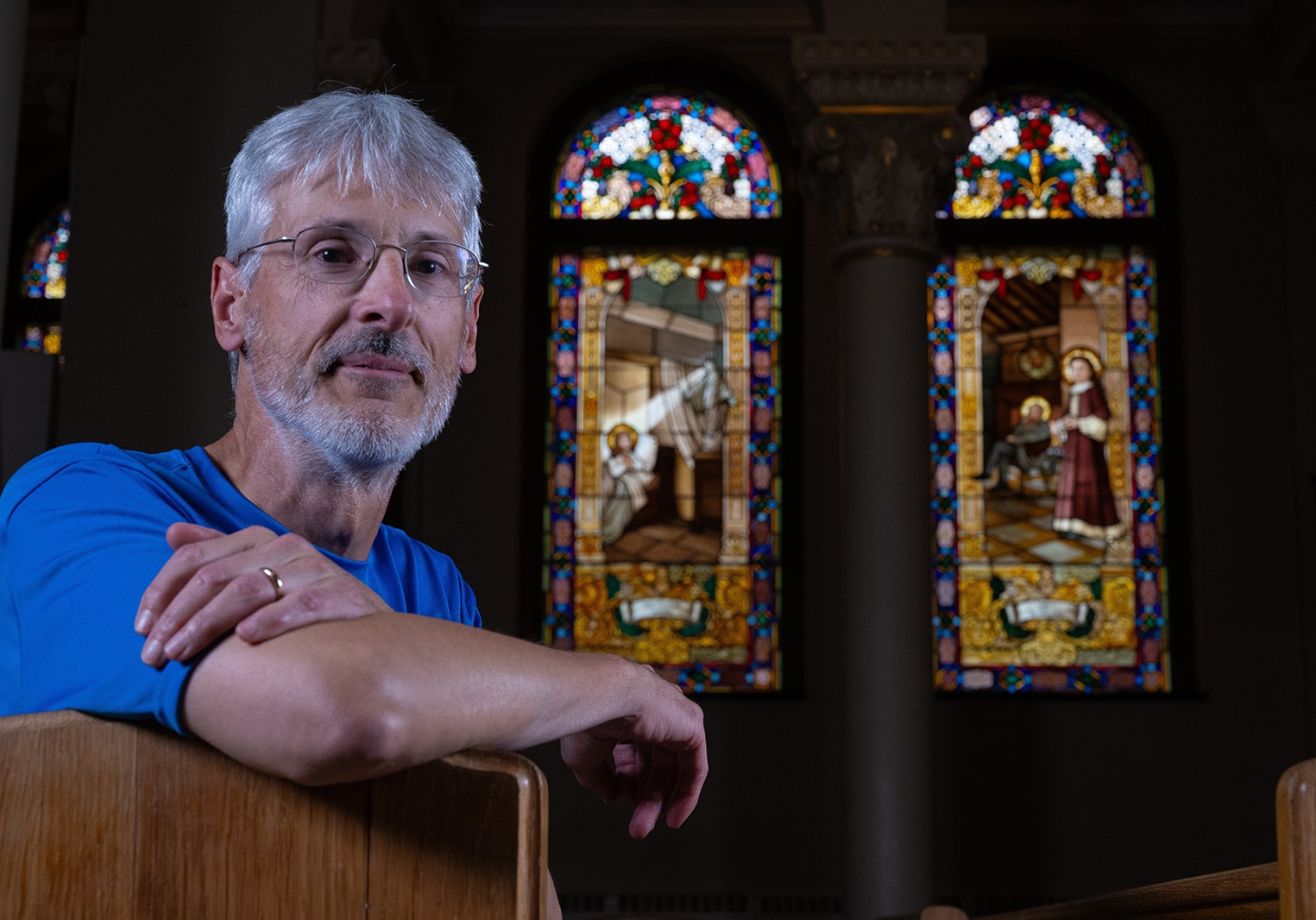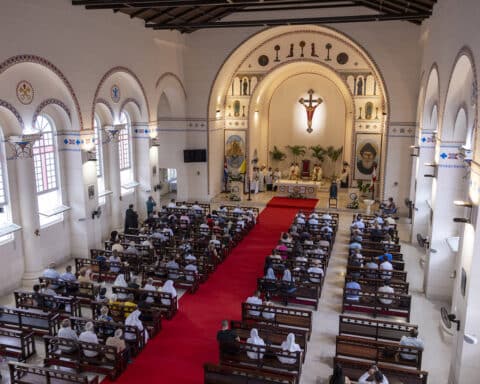HUBERTUS, Wis. (OSV News) — During a general audience in June, Pope Francis focused on St. Thérèse of Lisieux (1873-1897), the patroness of the missions, in continuing his series of talks about “zeal” for evangelization. He also announced he would write an apostolic letter dedicated to the saint known as “The Little Flower.”
“The church needs hearts like Thérèse’s, hearts that draw people to love and bring people closer to God,” the pope told his audience at St. Peter’s Square.
Devotees of St. Thérèse, including the Discalced Carmelite Friars at the Basilica and National Shrine of Mary Help of Christians — commonly known as Holy Hill and located about 30 miles north of Milwaukee — eagerly await Pope Francis’ apostolic letter. Its release is anticipated for her feast day, Oct. 1.
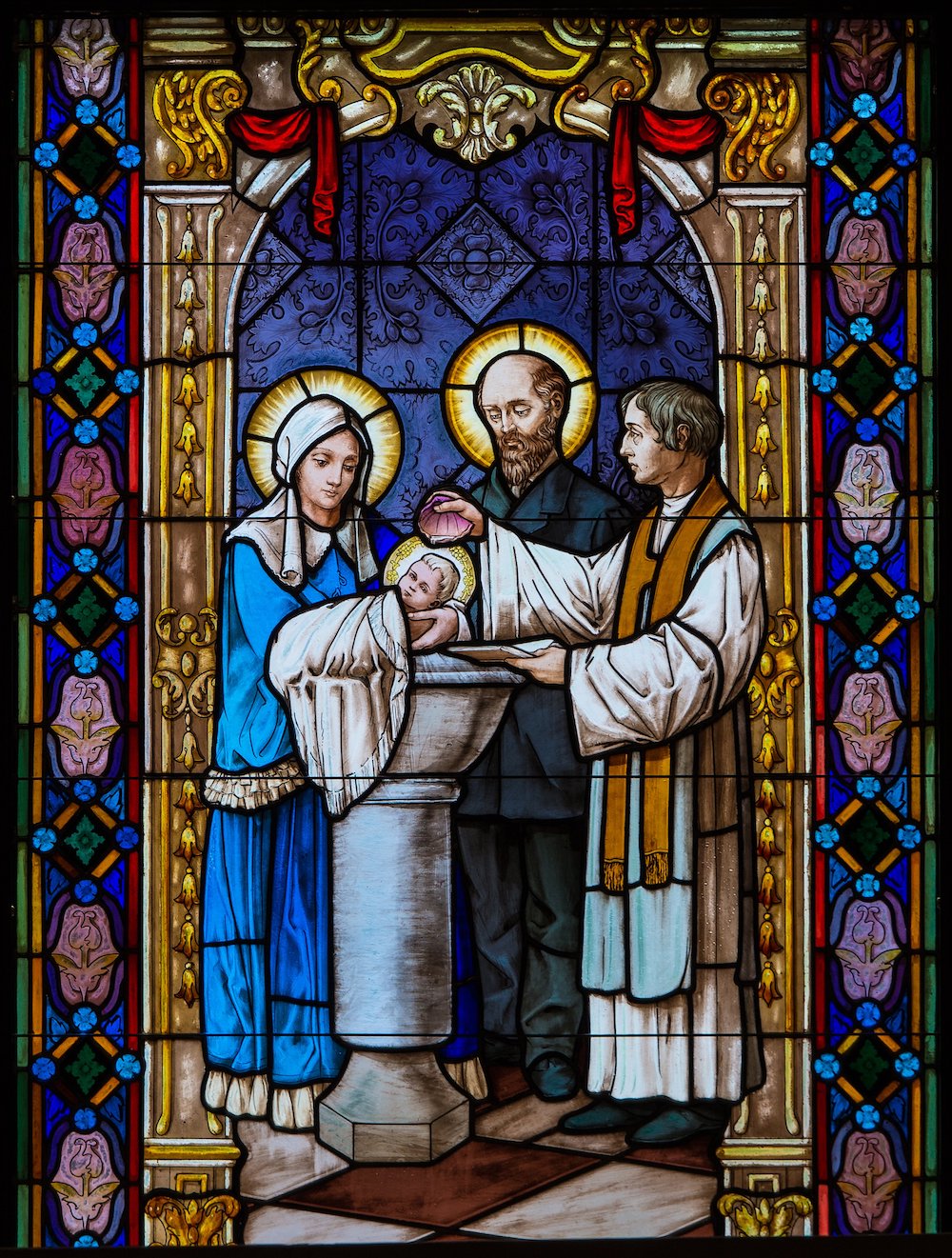
Holy Hill is home to St. Thérèse Chapel, which was dedicated July 15, 1928, three years after the French Carmelite nun was declared a saint by Pope Pius XI and one year after he declared her the patroness of the missions. People who have a devotion to St. Thérèse (or those who are simply curious about her) can learn more about her life through the chapel’s 16 stained-glass windows, most of which illustrate a moment in the saint’s life. The windows were created by Conrad Schmitt Studios of New Berlin, Wisconsin, and completed in 2014.
Discalced Carmelite Father Mark DeVelis, rector and prior at the basilica and shrine, said the chapel’s stained-glass windows offer “snippets of (Thérèse’s) life that you don’t ordinarily see in churches.”
“You see the traditional stuff, which is nice, of course, but it’s not unique. Holy Hill is a unique place for many reasons and Thérèse is a very special person here,” he said. “Shrines are an important place where people pray for healing and often find it. Thérèse, in her own life, suffered and she received healing miracles, too.”
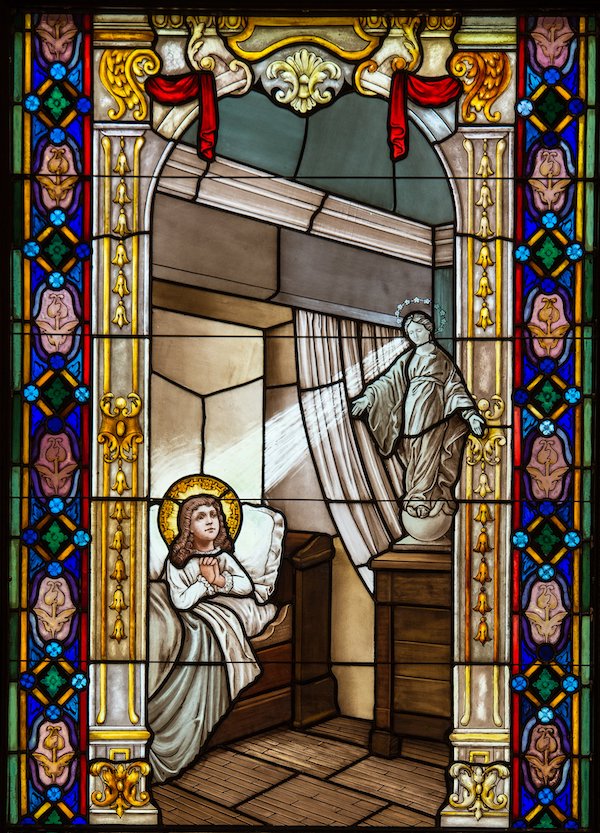
Scenes from Thérèse’s life
Among the scenes depicted in the chapel’s stained-glass windows are Thérèse’s baptism; her first Communion; an audience with Pope Leo XIII, asking him for a dispensation allowing her to enter the Carmelite convent; and a young Thérèse dressed as St. Joan of Arc — the venerated French martyr would be declared a saint for the entire Church in 1920, with St. Thérèse’s canonization following seven years later.
“She loved Joan of Arc,” Father DeVelis told OSV News. “She had the spirit of Joan of Arc. (She and her sisters) would dress up and do their little skits because they didn’t have TV. They had to entertain themselves, so she would be Joan of Arc.”
The stained-glass scenes truly offer a window into the Little Flower’s life, he added.
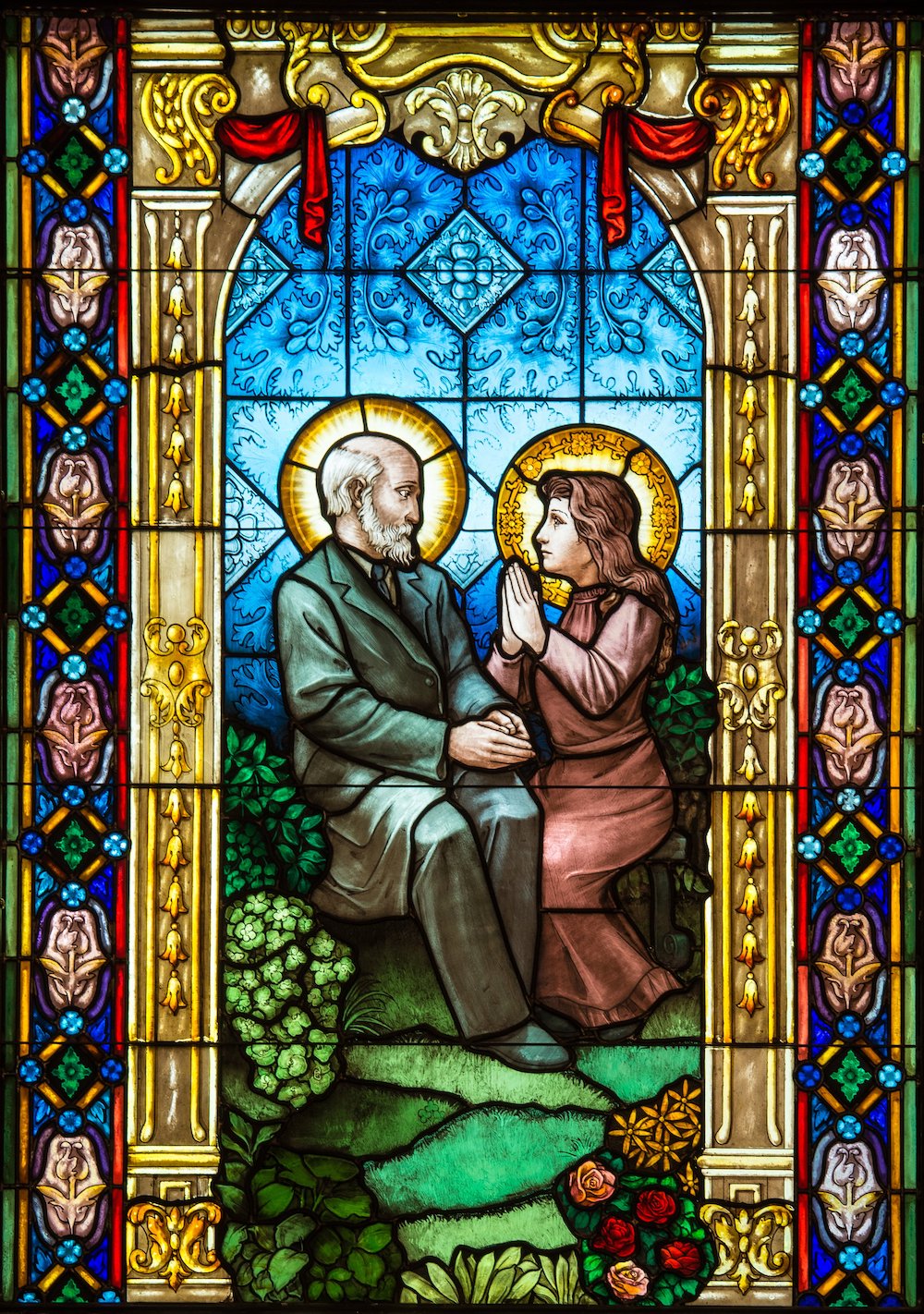
“That’s what I like about the windows. They’re real life,” he said. “They’re not just scenes of ‘I could never approach that.’ That’s why people love Thérèse — she’s so approachable. And these are the elements in her life that we can relate to. With Thérèse, there’s a lot of connections.”
Father DeVelis said his favorite window depicts a young Thérèse, sick in bed, praying to a statue of the Blessed Mother and being healed.
“People come to Thérèse for intercession, as someone who understood suffering in her own life,” he said. “Not so much to take it away, but ‘How do we embrace the little way if my life is suffering? How can that be transformed? What do I have to do to let God into my life to make that an experience of joy amid suffering?’ Thérèse has that key. She knows that because she knows the Lord. She’s someone that people can connect with because she suffered.”
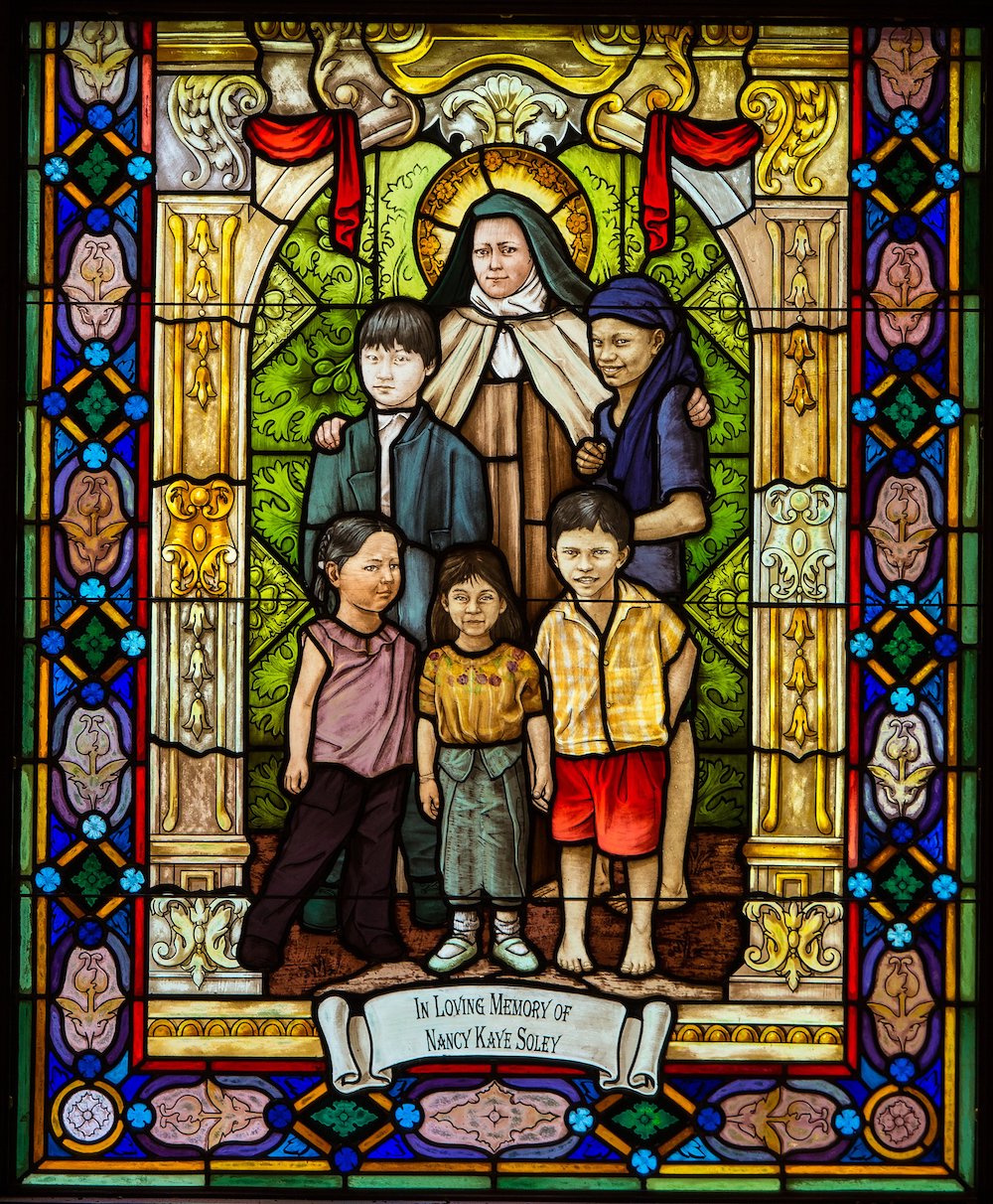
Holy work for missions
Viewing the windows and meditating on them, said Father DeVelis, “you really get the feeling that she’s here and that she’s walking with us and encouraging us to follow her way, which is the way of the cross, the way of the Gospel.”
Holy Hill has long been a pilgrimage destination for Catholics, non-Catholics and even people of no faith, said Father DeVelis. He estimates between 300,000 to 400,000 people visit Holy Hill each year.
While Pope Francis’ apostolic letter may boost the number of visitors to St. Thérèse Chapel, the Discalced Carmelite priest hopes it will primarily encourage all Christians “to work together to spread the Gospel in the spirit of St. Thérèse; to pray for those who are missionaries.”
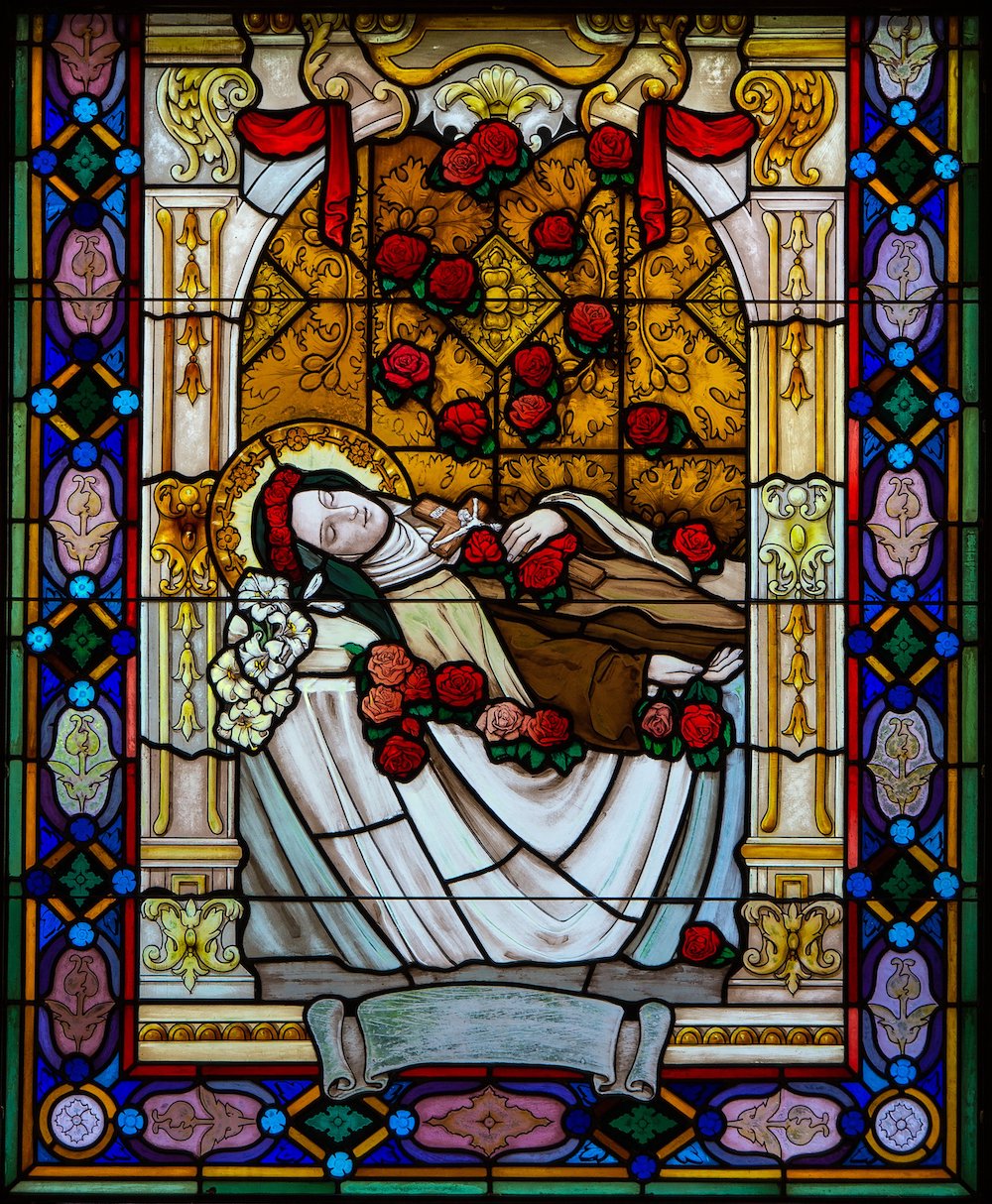
“Even in our country, we are undergoing some really anti-God, anti-religious beliefs and activities,” he said. “We’ve become, in many ways, a missionary country, so I hope it stimulates the faithful, to embrace their faith, to proclaim it, to spread it.”
St. Thérèse devoted her life to prayer for the Church’s work of evangelization, according to Pope Francis. If he includes this message in his letter, the pope “can help people reflect on what means to be a disciple, what means to be a missionary,” added Father DeVelis.
St. Thérèse’s missionary zeal is illustrated in one chapel window. She is seen standing with five children from the missions.
“If you can’t be sent, you can pray for missionaries,” which is how St. Thérèse supported the missions, the priest said. “You can live your life ‘the little way’ to support the missionaries, because we’re all together in this. So I hope (the apostolic letter) unifies the church as a missionary church. If it does that, then I think it’s going to be a good letter.”

